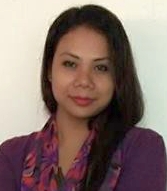People

Srinivasan Krishnaswamy
Assistant Professor
Email: srinikris@iitg.ac.in

Sabita Boro
Junior Technical Superintendent
Email: sboro72@iitg.ac.in
B. Tech. programme laboratory courses:
EE253 Instrumentation Laboratory (0-0-3-3)
Course Contents:
Measurement of physical parameters such as temperature, humidity, displacement, strain and force; Circuits for signal conditioning, signal recovery, and telemetry; Identification of common sources of error in measurements and quantifying their effect; Computer based instrumentation; Hardware implementation of PID controller; Computer controlled test systems.
Text/Reference Books
1. H. S. Kalsi, Electronic Instrumentation, 3rd edition. Tata McGraw-Hill, 2017.
2. C. D. Johnson, Process Control Instrumentation Technology, 8th edition. Pearson, 2015.
EE-351 Control and Robotics Lab (0-0-3-3)
Course Contents:
Design and realization of proportional, proportional-integral, proportional-derivative and proportional-integral-derivative controllers; Position and speed control of DC motors; Familiarization with two/three linkage robot arm, Familiarization with wheeled mobile robot.
Texts/References
Ogata, Modern Control Engineering, 5th Edition. Prentice Hall India, 2010.
Gopal, Control Systems, 3rd Edition. Tata McGraw-Hill, 2008.
J. Craig, Introduction to Robotics: Mechanics and Control, 3rd Edition. Pearson Education, 2008.
M. Tech. programme laboratory courses:
EE 555 Automation Lab (0-0-3-3)
Course Contents:
DC motor characteristics, modeling using transfer function and state variable methods, position control of DC motor using PID controller, speed control of DC motor using pulse width modulation; Kinematic modeling and assembling of a differential drive automated wheeled robot, various sensors and their use in mobile robot localization and obstacle detection; Robot motion control and navigation.
EC552(old 558) Applied Control Lab (0-0-3-3)
Course Contents:
1. DC Motor Speed Control: Using PLC to control the speed of DC Motor to understand the principles of feedback control, PWM and PLC programming. The objective is to study the following-
a. Open loop speed control.
b. Close loop speed control.
c. Use of PLC for the speed control.
d. Acceleration and deceleration ramps programming in PLC.
e. To Monitor the duty cycle of the motor.
2. AC Machine Control: The objective will be to study-
a. Open loop speed control.
b. Close loop speed control.
c. Frequency converter and its control.
d. Acceleration and deceleration ramps programming in the controller.
e. PWM programming.
3. Process Measurement and Control: The objective of this experiment is to understand:
a. Industrial measurements.
b. The control systems used in industry.
c. The programming techniques of the controller to achieve specific purpose.
d. Process supervision through PC.
e. Various transducers and sensors used in the industry.

Assistant Professor
Email: srinikris@iitg.ac.in

Junior Technical Superintendent
Email: sboro72@iitg.ac.in